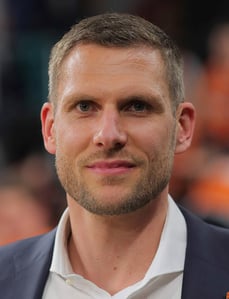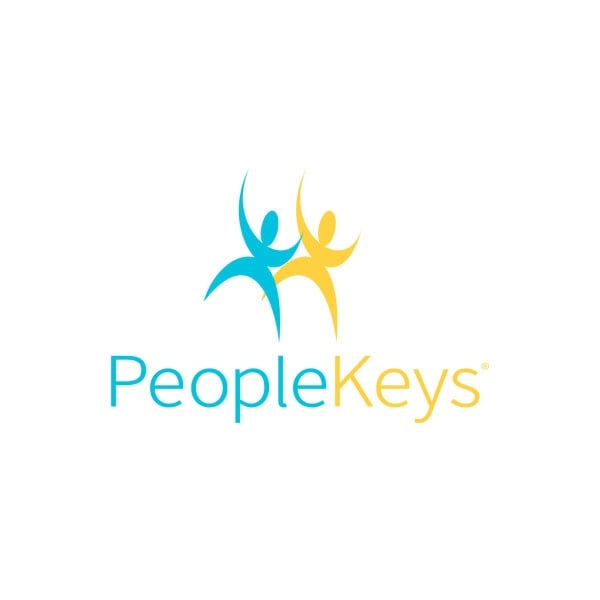How to Improve Sports Performance with DISC
 Nils Mittmann, born in 1979 in Braunschweig, Germany is a 20-year professional Basketball veteran with career stints for elite German teams like Ludwigsburg, Würzburg, and Ulm. After his athletic career, the graduated sports manager gained his first professional experience in a tech company. After only three years, he became the company head of marketing and sales. In 2019, he became a PeopleKeys® Certified Behavioral Consultant and returned to his lifetime passion- basketball - to consult sports organizations and consult and represent athletes. His work focuses on a holistic athlete consulting approach combining specific basketball themes, like skill development with personal development and further education under a jointly elaborated career vision. Personality style: ID
Nils Mittmann, born in 1979 in Braunschweig, Germany is a 20-year professional Basketball veteran with career stints for elite German teams like Ludwigsburg, Würzburg, and Ulm. After his athletic career, the graduated sports manager gained his first professional experience in a tech company. After only three years, he became the company head of marketing and sales. In 2019, he became a PeopleKeys® Certified Behavioral Consultant and returned to his lifetime passion- basketball - to consult sports organizations and consult and represent athletes. His work focuses on a holistic athlete consulting approach combining specific basketball themes, like skill development with personal development and further education under a jointly elaborated career vision. Personality style: ID
Spending over 20 years in professional sports, playing basketball in Germanys' top league, and in the European club competition, I was always eager for self-improvement and to get a competitive edge wherever I could. Leaving my playing days behind, I can look back on great teammates who mentored me at the beginning of my career, successful playoff runs, and winning championships. Still, I also remember devastating blowouts or losing a cup final at the buzzer. Even my "off-court” experiences, such as negotiating my contracts without a sports agent or studying sports management parallel to my professional career, has had a substantial impact on me.
In 2014 I began my transition into the "real world” and started working for a tech company, helping large enterprises to digitize sales and marketing processes for increasing customer engagement. I continued playing basketball in Germany’s second-highest league, leading a team of 16 to 21-year-olds. That gave me great insight and a deep understanding of the challenges of promising young talent in working their way up to the professional level. Now, I want to pass on the experience and knowledge I gained to the next generations of athletes and sports organizations as a consultant and a FIBA certified player representative.
In sports, and especially in stats-driven basketball, many times the people-side comes up short. Duke legendary men's basketball team head coach, Mike Krzyzewski, sums it up perfectly:
"A common mistake among those who work in sports is spending a disproportional amount of time on x's and o's as compared to time spent learning about people."
One of the all-time greatest coaches' observations describes one of the biggest challenges in working with rising athletes and professional sports teams. Everybody is under pressure: GM's, coaches, and players. Winning is at all costs, but I believe sustainable success in sports needs a solid foundation and the right people in the right positions, just like in any other successful organization. Maybe even more, since most of the time in sports, you just don't have time. There’s no time to develop real team chemistry. No time for athletes to adjust to a new situation in a foreign country, or with new people they’ve never interacted with before. Everybody expects you to perform at a high level right away, or you get replaced pretty quickly. I want to help prepare players to face these challenges better.
I take a holistic athlete consulting approach, where I make sure to focus on more than just the x's and o's, basketball skills, and athletic qualifications. Personal development and further education are just as important when striving for a successful and long, active career in sports. Working with my clients on personal growth, self-awareness, leadership, and communication skills, I genuinely appreciate using the PeopleKeys toolbox. When I first used the DISC profiling method, I was surprised at how fast my client and I went into a high-quality, deep conversation resulting in sincere self-reflection. Together we worked on an action plan to help his communication habits, how to take criticism the right way, and develop a better understanding of his teammates' and coaches' behavior. The feedback from athletes working with the DISC system of behavioral analysis has been so positive that it became an integral part of my holistic athlete consulting approach.
My regular exchange with coaches and managers of professional basketball teams encouraged me to introduce the DISC method to them as well. Using DISC profiling helps organizations speed up team chemistry processes effectively. The DISC system of behavioral analysis helps clubs learn about coaches' and players' motivators, fears, and communication habits and gather real vital insights of potential player personalities in the recruiting phase, providing additional information to identify the right players for their programs. Using the DISC method and PeopleKeys products in my daily work with athletes, coaches, and sport managers became a competitive edge for my business and for my clients.








